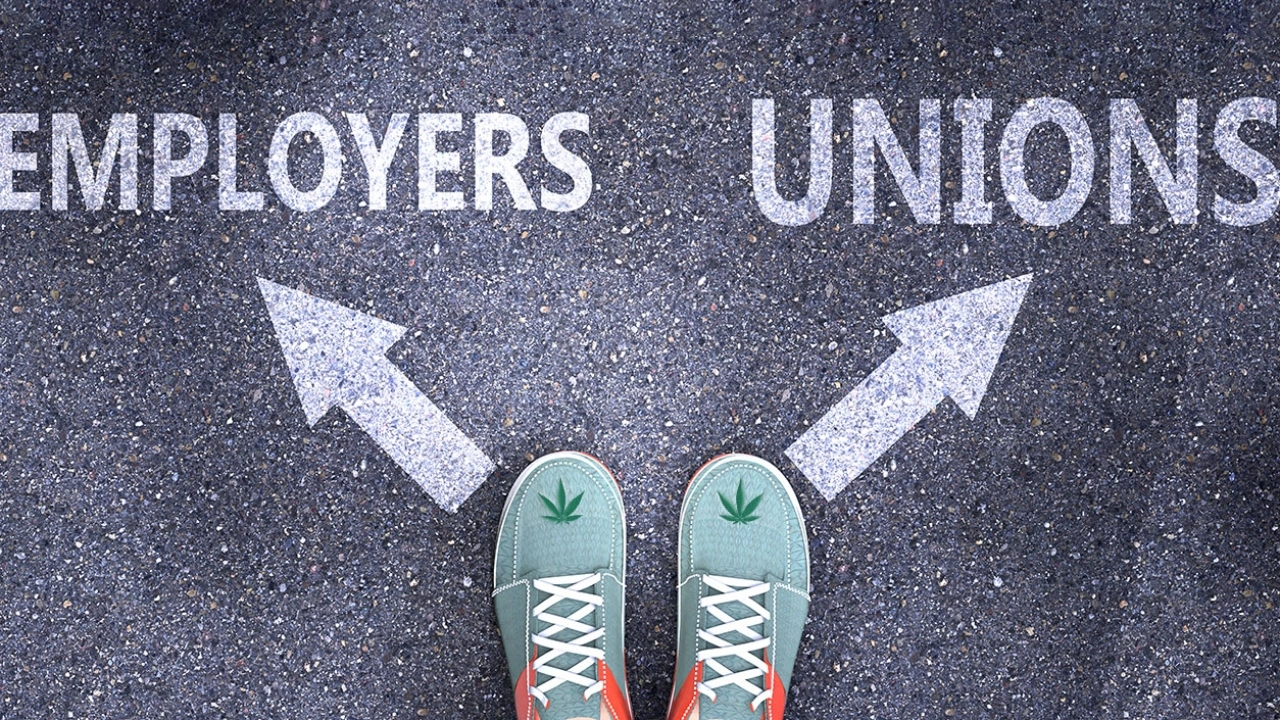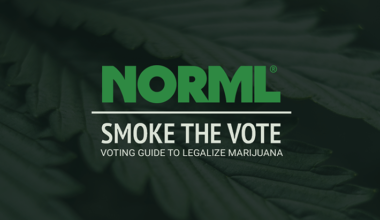A Michigan cannabis company is attempting to thwart a unionization effort using a novel tactic: convincing the Trump administration that cannabis workers don’t enjoy federal labor law protections because cannabis is illegal under federal law.
If the argument that Ann Arbor-based Exclusive Brands recently presented to the National Labor Relations Board (NLRB) is successful, workers across the $32 billion national market could see their rights and protections weakened, observers told MJBizDaily.
It’s believed to be the first time a cannabis company has tried to cite federal marijuana prohibition to avoid unionization, several observers told MJBizDaily.
Such a finding would require the NLRB to contradict itself and declare, after years of recognizing cannabis worker unions, that it was incorrect and that the National Labor Relations Act (NLRA) does not apply.
That would be a “significant departure,” Lauren McFarran, a former chairperson of the NLRB, told MJBizDaily, because prior decisions have recognized cannabis workers’ rights under federal labor law.
Major labor reversal possible under Trump administration
But under Trump, it’s entirely possible, said Maggie Gray, a professor of political science at Adelphi University who’s published on labor issues.
“The NLRB has made many decisions that recognize cannabis workers,” Gray acknowledged.
At the same time, the Trump administration has demonstrated an appetite to curtail union protections for both public and private sector workers, she noted.
“So I don’t think it’ll be a surprise if a Trump-appointed NLRB decided to no longer recognize cannabis workers.”
Before that can happen, the Trump administration needs to make more appointments to the board, which cannot meet and issue any decisions at all until it has at least a three-member quorum.
In that vacuum, state-level labor laws still apply. And that sets up yet another patchwork of conflicting rules for workers and cannabis companies to navigate.
Michigan situation has implications for workers
In Michigan, eight workers at Exclusive Brands’ store in Ann Arbor have been on strike since Aug. 28.
That’s in response to the company’s refusal to recognize their decision to join the United Food and Commercial Workers, according to Emily Hull, a budtender and a member of the organizing committee.
Forming a union is only one step on a long road toward negotiating a contract.
Among the workers’ grievances is a pattern of retaliation that sees employees’ hours reduced as punishment for raising issues at work, Hull said.
Exclusive is refusing to communicate with the union at all, she added.
Neither Omar Hishmeh, Exclusive Brands’ president, nor the company’s Detroit-based attorney Josh Leadford responded to MJBizDaily requests for comment.
In a petition filed with the NLRB on Aug. 4 obtained by MJBizDaily, Leadford argues that “(f)ederal courts have not, and will not, exercise jurisdiction to (Exclusive’s) business because its business involves the processing and sale of Cannabis, a Schedule I controlled substance under federal law.”
It adds: “Consistent with this rule, neither (the union) nor (Exclusive) can invoke jurisdiction of the Act, the NLRB, or for federal court enforcement of any Board orders or decisions because applying the Act’s provisions, protections, restrictions and other statutory terms would facilitate, promote and/or benefit the lawful state activities which conflict with federal law.”
Leadford’s brief petition does not cite prior NLRB decisions or case law to support its argument.
According to the case docket, a hearing is pending.
Some states have better labor laws than others
In an interview Monday with MJBizDaily, McFarran, whose appointment as chair expired in December, noted that even Republican-appointed regional and national review panels have found the NLRA applies to cannabis.
“None of them have ever found that the fact cannabis is involved means the board lacks jurisdiction,” she said.
But with the NLRB in limbo, all labor questions could revert to state officials.
That’s what so-called “trigger laws” in California, New York and Massachusetts call for: allowing workers to petition state labor-relations entities if the NLRB cannot function.
That could work against cannabis companies in such blue states. In contrast, it would be a boon for anti-unionization efforts in states with weak labor laws such as Missouri, where the cannabis industry is doing comparatively well compared to other states.
It’s not clear what might happen next in Michigan, where Democratic lawmakers repealed anti-union “right-to-work” laws in 2024.
Asked whether state regulators might step in, a spokesman for the Michigan Cannabis Regulatory Agency said it could not comment.
Michigan labor officials did not comment on Monday.
Exclusive Brands employs 125 people in two locations, including 18 in Ann Arbor where Hull and her seven co-workers are on strike.
Subscribe to the MJBiz Factbook
Exclusive industry data and analysis to help you make informed business decisions and avoid costly missteps. All the facts, none of the hype.
What you will get:
- Monthly and quarterly updates, with new data & insights
- Financial forecasts + capital investment trends
- State-by-state guide to regulations, taxes & market opportunities
- Annual survey of cannabis businesses
- Consumer insights
- And more!
Unraveling Biden legacy
Cannabis workers already enjoy unequal protections under federal labor law.
That’s in part because the NLRA does not cover agricultural workers, leaving out cannabis cultivation employees.
The exceptions are states where a state law covers ag workers, such as California.
Unions made significant strides in organizing workers in the labor-intensive cannabis industry under the Biden administration, widely considered one of the most labor-friendly White Houses in decades.
Workers at a Trulieve Cannabis cultivation site in Arizona were the first ag-sector workers in that state to organize in 25 years.
At the same time, several cannabis companies, including major marijuana multistate operators such as Curaleaf Holdings and Green Thumb Industries, proved willing to challenge unionization efforts at both the NLRB and the courts.
More recently, Glass House Brands, California’s largest cultivator, appears to have ignored a labor-friendly licensing requirement without state regulators noticing.
And cannabis companies in California, New York and Oregon have sued to overturn that labor-friendly requirement.
In this context, Exclusive’s petition can be seen as another example of unwinding Biden’s legacy as well as an experiment to see what previous boundaries the Trump administration might cross next, observers said.
“It seems like they’re testing the waters and seeing what they can get away with,” Hull said.
Chris Roberts can be reached at chris.roberts@mjbizdaily.com.
Medical Disclaimer:
The information provided in these blog posts is intended for general informational and educational purposes only. It is not a substitute for professional medical advice, diagnosis, or treatment. Always seek the advice of your physician or other qualified healthcare provider with any questions you may have regarding a medical condition. The use of any information provided in these blog posts is solely at your own risk. The authors and the website do not recommend or endorse any specific products, treatments, or procedures mentioned. Reliance on any information in these blog posts is solely at your own discretion.






